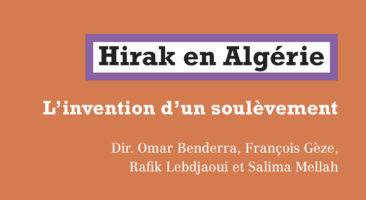RSF: No-one goes in, no-one comes out!
Reporters Without Borders / Reporters sans frontières
NO-ONE GOES IN, NO-ONE COMES OUT!
11 October 2006
Reporters Without Borders said today it was dismayed at the Algerian authorities’ growing use of bureaucratic pretexts to obstruct the work of Algerian journalists.
Since summer 2006, French-Algerian journalist Lakhdar Khelfawi and Algerian journalist Arezki Aït-Larbi have been banned from leaving the country after the authorities resurrected old charges against them dating back to 1997. Elsewhere four French cartoonists have been refused visas to enter Algeria.
« »The administrative harassment which Algerian journalists have to face and the never justified refusals to grant visas to some foreign journalists are among the tools used by the government to gag the press and prevent news circulating, » the worldwide press freedom organisation said.
« While press offences are still penalised by the law, the work of Algerian journalist is increasingly obstructed by false bureaucratic excuses, » it said.
.
« The cases of Khelfawi and Aït-Larbi perfectly demonstrate the use the Algerian authorities make of the dysfunctions in the judicial system. The 5 July 2006 decision of President Abdelaziz Bouteflika to pardon all journalists sentenced for « offending constituted institutions and bodies » and « defamation », turned out to be just window dressing as far as any hopes for a possible improvement in press freedom in the country was concerned. The regime always makes sure it has the means to harass dissident voices, » it concluded.
Arezki Aït-Larbi, correspondent for French newspapers Le Figaro and Ouest France, is among the Algerian journalists who are harsh critics of the government and who have the opportunity to express themselves in foreign media, thus escaping the self-censorship of local media.
After he had his request for a renewal of his passport refused in May 2006, the Algerian journalist found out that he had been sentenced to a six-month prison term dating from December 1997. A defamation suit had apparently been entered by a former head of prison services linked to the justice ministry whose turning a blind eye to the mistreatment of prisoners in Lambèse jail had been exposed by Aït-Larbi in an April 1994 article in the weekly l’Evénement.
The journalist had never received any notice of the suit or of his court summons. Since he was sentenced in his absence, it is not considered final and therefore not eligible for the presidential pardon. Learning that the journalist had been the subject of an arrest warrant in July 1997, his lawyer now fears he could be put under a committal order if he went to court to contest the early judgement. Aït-Larbi told Reporters Without Borders that he sees the whole case as a fresh attempt at intimidation by the Algerian authorities, which have also systematically refused to give him official accreditation for more than ten years.
Khelfawi, who has been settled in France since 1998, returned to Algeria for family reasons in June 2006. When he tried to return to France on 12 July, he was banned from leaving the country by border police.
This ban, which dates back to 1997, followed a conviction for « defamation » and a sentence of six months in prison and a fine of 2000 DA (about 23 euros). The editor of the weekly El-Kalaâ was named in a lawsuit lodged by the wali (prefect) of Tébessa, after he published an article remarking on the official’s absence from an official ceremony. The Algerian authorities still prevent him from leaving the country even though the 5 July presidential pardon is applicable to his case.
In addition, four French cartoonists, René Pétillon (Le Canard enchaîné), Nicolas Vial (Le Monde), Georges Wolinski (Paris Match, Le Journal du dimanche) and Nono (Le Télégramme de Brest), had visa requests refused, officially because of an « administrative backlog ». They had been invited by the French cultural centre in Algiers to take part in an exhibition of press cartoons, originally planned for 12 October.

